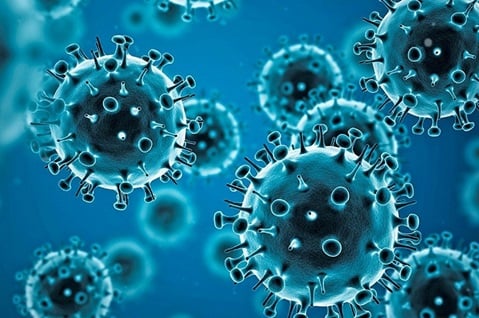In a recent announcement, the Nigeria Centre for Disease Control and Prevention (NCDC) has moved to allay concerns about the emergence of two new subvariants of the Omicron variant of the SARS-CoV-2 virus. The subvariants in question, named EG.5r and BA.2.86, have not been identified within Nigeria’s borders, according to an official press statement released on Saturday.
Dr. Ifedayo Adetifa, the Director General of the NCDC, delivered the reassuring message. He emphasized that while the agency remains vigilant, no cases of these new subvariants have been detected within Nigeria. The NCDC’s continuous monitoring efforts play a crucial role in ensuring the nation’s preparedness to respond effectively to any potential challenges posed by emerging variants.
The EG.5 variant, identified as a descendant of XBB.1.9.2, which itself stems from the Omicron lineage, has been reported in a staggering 51 countries around the world. Notable nations such as China, the United States, the Republic of Korea, Japan, Canada, Australia, Singapore, the United Kingdom, France, Portugal, and Spain are among those affected. Despite its broad reach, the World Health Organization (WHO) has classified EG.5 as a “variant of interest” (VOI), indicating that its global risk remains relatively low.
The WHO’s risk assessment also revealed that the EG.5 variant has not led to any notable changes in symptoms, severity of illness, or mortality rates in the countries where it has made its appearance. Symptoms associated with EG.5 mirror those observed in other COVID-19 variants: fever, cough, shortness of breath, fatigue, muscle aches, headache, and sore throat. It’s important to note that, so far, Africa has recorded only a single case of the EG.5 variant, and it has not been identified.
The press statement further delved into the BA.2.86 variant, a lineage originating from the previously identified BA.2 subvariant, which made its debut back in 2022. As of August 23, 2023, BA.2.86 has surfaced in a handful of countries, including the United Kingdom, Israel, Denmark, South Africa, and the United States. This new variant has been given the designation “variant under monitoring” (VUM) by the WHO, given its distinct genetic makeup compared to its ancestor, BA.2, and other circulating XBB-derived SARS-CoV-2 variants.
However, due to the limited number of cases identified thus far, assessments of BA.2.86’s virulence, transmission capabilities, and severity remain inconclusive. Dr. Adetifa stressed that the NCDC is closely watching these developments, as well as any potential impact they might have on public health.
Amid the ongoing monitoring efforts, the NCDC’s COVID-19 Technical Working Group continues to keep a close watch on the global and local epidemiology of the virus, including the emergence of new variants. The agency’s influenza sentinel surveillance sites remain active, providing valuable insights into COVID-19 prevalence among patients exhibiting influenza-like symptoms and severe respiratory issues. Despite a decrease in testing levels, no significant uptick in COVID-19 trends has been observed within these groups.
Dr. Adetifa underscored the NCDC’s dedication to enhancing COVID-19 testing across select states. This initiative aims to gather more detailed information about the prevalence of various viral variants within the country. Additionally, the distribution of COVID-19 rapid diagnostic kits seeks to bolster bi-directional testing efforts.
The Director General called upons and media professionals to share only verified information, avoiding the spread of unnecessary anxiety and panic. Reiterating the ongoing reality of COVID-19, Dr. Adetifa highlighted that the disease primarily poses a significant risk to high-risk individuals, including the elderly and those with underlying chronic conditions.
He implored citizens to continue practicing good hand hygiene, wearing masks when necessary, and seizing opportunities to get vaccinated against COVID-19. Vaccination stands as a crucial defense against severe disease symptoms, hospitalization, and mortality in the event of contracting the virus.
In closing, Dr. Adetifa pledged that the NCDC would remain vigilant, monitoring the global landscape and any developments related to emerging variants. The agency’s commitment to providing scientifically grounded and evidence-based information remains unwavering as it strives to safeguard public health.



